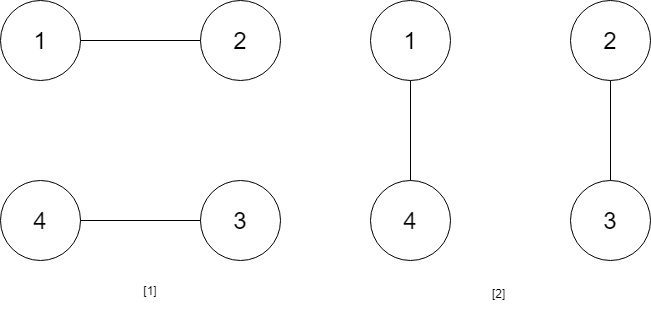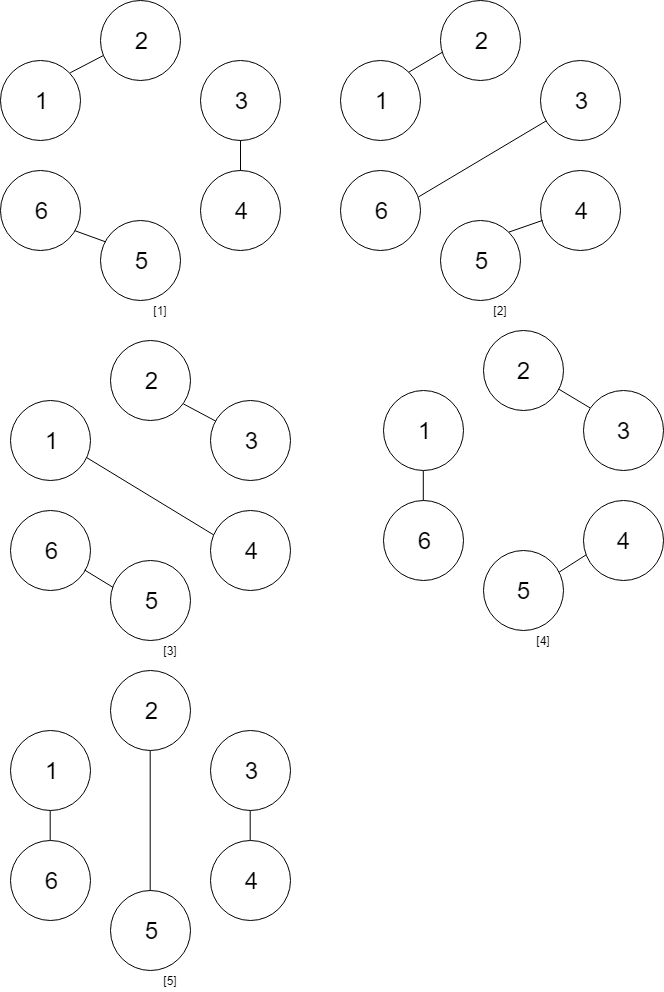In a given 2D binary array A, there are two islands. (An island is a 4-directionally connected group of 1s not connected to any other 1s.)
Now, we may change 0s to 1s so as to connect the two islands together to form 1 island.
Return the smallest number of 0s that must be flipped. (It is guaranteed that the answer is at least 1.)
Example 1:
Input: A = [[0,1],[1,0]] Output: 1
Example 2:
Input: A = [[0,1,0],[0,0,0],[0,0,1]] Output: 2
Example 3:
Input: A = [[1,1,1,1,1],[1,0,0,0,1],[1,0,1,0,1],[1,0,0,0,1],[1,1,1,1,1]] Output: 1
Constraints:
2 <= A.length == A[0].length <= 100A[i][j] == 0orA[i][j] == 1
1 2 3 4 5 6 7 8 9 10 11 12 13 14 15 16 17 18 19 20 21 22 23 24 | class Solution { public: int paint(vector<vector<int>>& A, int i, int j) { if (i < 0 || j < 0 || i == A.size() || j == A.size() || A[i][j] != 1) return 0; A[i][j] = 2; return 1 + paint(A, i + 1, j) + paint(A, i - 1, j) + paint(A, i, j + 1) + paint(A, i, j - 1); } bool expand(vector<vector<int>>& A, int i, int j, int cl) { if (i < 0 || j < 0 || i == A.size() || j == A.size()) return false; if (A[i][j] == 0) A[i][j] = cl + 1; return A[i][j] == 1; } int shortestBridge(vector<vector<int>>& A) { for (int i = 0, found = 0; !found && i < A.size(); ++i) for (int j = 0; !found && j < A[0].size(); ++j) found = paint(A, i, j); for (int cl = 2; ; ++cl) for (int i = 0; i < A.size(); ++i) for (int j = 0; j < A.size(); ++j) if (A[i][j] == cl && ((expand(A, i - 1, j, cl) || expand(A, i, j - 1, cl) || expand(A, i + 1, j, cl) || expand(A, i, j + 1, cl)))) return cl - 2; } }; |

